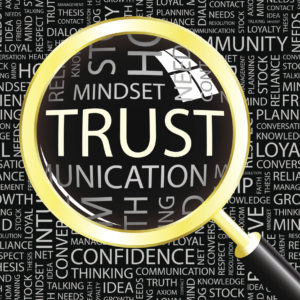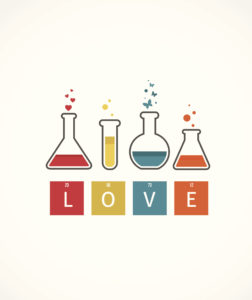
I’m gonna just say it–romance is not just for young lovers and new relationships! Romance, like chocolate, is something that can be enjoyed throughout the entire adult lifespan, if one continues to get enjoyment from it. But I will also say this–it is harder to feel romance for someone you see everyday over a long period of time in, well, less than romantic situations.
This is why it can be helpful to know that it is perfectly natural for romance, something that may have come easily and spontaneously in the beginning, to require a bit of effort in a long-term relationship. There is no shame in admitting this! I am amazed at how we can accept that many things in life will take some work to maintain, but when it comes to love, romance, and sex, we are misled into thinking that they will maintain themselves. If this is the case for your relationship, then great! But if you are like most of us, you could use a few tips on how to re-light the fire, whether it is for Valentine’s Day, an anniversary, or an occasional Date Night.
ROMANCE IS NOT BASED ON PASSION: Couples regularly come to my therapy office seeking ways to feel the passion they had for one another when they first started dating. This is understandable, because those feelings are wonderful to feel! The start of a relationship can make us feel alive, sexy, cared about, wanted, and interesting–all good things. The only problem with this stage is that it usually only lasts for 6-12 months. After that, things can start to become a bit “calmer” as we begin to navigate the intricacies of relationship development.
The biology around this, in a nutshell, is that the early stage of excitement between two people, what we often call “passion”, is actually a process of “bonding”, where our brains release chemicals that encourage us to focus on one individual over a period of time in order to build safety and trust. You can imagine how this would be useful for the process of creating a family, which is what our biology wants us to do, but for the average person on a date, the immediate goal is often just sex.
(If you want to geek out on the science of love, attachment, and bonding, you can read more HERE.)
Romance, on the other hand, is not based in biology, it is based in the cultural history of courtship and how we view self-fulfillment, but is continues to strongly influence our desire for a sexual partner. The trick is to separate the wheat from the chaff, as they used to say, or, in other words, knowing what is helpful and what is not.
When I say that romance is not based on passion, I am making a distinction between how we are biologically wired to behave regarding sex and how we learn to think about it. Recognizing this difference allows partners who want more romance in their relationship to “hack the system” more effectively, using both their biology (hormones), and their perspective of each other (thinking).
ROMANCE MAY OR MAY NOT LEAD TO SEX: Centuries ago, romance didn’t lead to sex, necessarily–it was more of a tool for increasing social status! In the 1900’s, it didn’t necessarily lead to sex either, at least not until after marriage! As societal stigma toward pre-marital sex weakened in the last half of that century, it seems that people would use romance to get sex; when I was growing up in the 1970’s and 80’s, romance was associated just as much with sex as it was with marriage.
What I notice today is that romance is nearly dead as a pathway toward sex. Today, sex is often simply the result of either a transactional agreement between partners (what can you do for me?), or the influence of drugs and/or alcohol. Not very sexy, if you ask me. But many younger people don’t share my view–they see this approach as liberating–sex is given and taken freely(ideally) and with mutual consent, with pleasure as the one goal so nobody gets hurt. No muss, no fuss!
So why do couples, both new and long-term, place so much weight on the role of romance in relationship and sex when holidays like Valentine’s Day or an anniversary come around? My hunch is that these couples are wanting to feel something in their relationships that they think is missing and important to feel—romance! But romance is just the packaging, the feelings underneath are excitement and anticipation–that sense that you are important and have something to look forward to.
If you agree with my perspective, then there is good news! Romance, rather than being an essential element of passion and attraction, is instead a label as well as a byproduct of couples who actively choose to be more present and curious with each other! As a label, you can place it on any feeling or activity you choose–romance sets a story into motion that can bring couples closer. And when couples intentionally show curiosity towards one another in a mindful way, romance is generated from the connection they feel.
What these couples do with romance is completely up to them! They can utilize it to have passionate sex together, or a cuddle-fest under a blanket in front of the fireplace, and everything in-between. Romance, when authentically created from your interest in who your partner is in the moment, is something that does not need to be forced or staged–it doesn’t require a setting or an expensive dinner. It just requires that you and your partner show up for each other. That, not romance, is what leads to loving sensual, loving sex–if you want it!
ALL THE BENEFITS, NONE OF THE DOWNFALLS! Many of us think back to the beginnings of relationships with wistful fondness, wishing we could feel that excitement yet again with our partner. But you know what else we often felt along with that excitement? Anxiety, fear, doubt, insecurity, impatience, and frustration. Yes, the beginning of a relationship can be a heady time, full of romance and sexual energy and hope, but the headiness is just not sustainable because of the elevated state it requires one’s body and mind to be in.
That elevated state does serve a purpose in that it encourages bonding, which is an important stage in relationship building, but it is only the first stage. It eventually shifts into something calmer, more secure (hopefully). But this does not mean that you have to give up romance, especially if you both value it and the role it plays in your dynamic . It just means you may have to put a bit of effort into feeling it.
This is good news. It means that you have some control, and choice, in what your relationship feels like over time. But wait! There is more good news! When you succeed in generating romance, you may be pleasantly surprised to find it missing the negative elements listed above, because the calm, secure energy is maintained. You get all of the benefits, with none of the downfalls! And this is when couples can truly thrive together, in a state of safe risk, calm excitement, and playful creativity.
And it doesn’t ever have to end if you are both committed to it.
So if you want to choose it with your partner, then be willing to take some risks with them–because that vulnerability is very sexy (it’s what we fall in love with!) Bring back favorite activities or explore new ones–it is the shared experience that you are going for–romance comes from a place of discovery. You don’t have to feel it immediately, just trust the process and be present, and let the connection come from that. Romance is created out of the way we think about our partner, which then affects how we feel about them. There is nothing wrong with needing a nice setting and good lighting to change our perspective!
***
What I find exciting about being a couples therapist today is that relationship, marriage, and sex are being pulled apart and re-imagined in ways that better serve all partners, both as individual and as community members. By making relationships something you choose rather than an obligation, you invite choice to be a key player throughout your time together. Romance can be expressed in as many ways as one can imagine, both in words and in actions–I leave it up to you and your preferences to come up with juicy possibilities. So if you value the energy that romance brings to the table, then I say choose it!–together, and show the young lovers what they have to look forward to.



